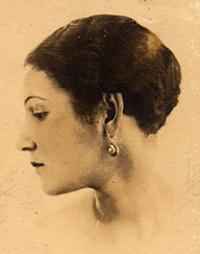Afro-Martiniquais
Navigation Links
Authors in this exhibit:
- Jean Bernabé
- Marie-Magdeleine Carbet
Afro-Martiniquais
Afro-Martinique is a term used to describe Martinicans who identify more with the island’s Creole culture than they do with the French culture.
Historical Context
Martinique’s fusion of French and Caribbean culture was developed during the colonial era when descendants of African slaves were brought to work on sugar plantations.  Nevertheless, many scholars still believe there is great social unrest and idolization of French culture due to the neocolonial political and social structures still present in Martinique.
Nevertheless, many scholars still believe there is great social unrest and idolization of French culture due to the neocolonial political and social structures still present in Martinique.
Within the dataset for the project’s name, Martinican authors, Jean Bernabé and Marie-Magdeleine Carbet identify as “Afro-Martinique”
Jean Bernabé

Jean Bernabé was a Martinican writer, linguist, and the co-founder of the literary movement, “Créolité,” which aimed to increase awareness and appreciation for the French Caribbean’s unique history and cultural roots. Bernabé’s literary works frequently cherished this unique Creole Caribbean identity as well as highlighted the socioeconomic issues within the French Caribbean such as slavery, and the dependence and exoticism of France’s culture.
“Neither Europeans, nor Africans, nor Asians, we proclaim ourselves Creoles. This will be for us an interior attitude—better, a vigilance, or even better, a sort of mental environment in the middle of which our world will be built in full consciousness of the outer world. These words we are communicating to you do not stem from theory, nor do they stem from any learned principles. They are, rather, akin to testimony. They proceed from a sterile experience which we have known before committing ourselves to reactive our creative potential and to set in motion the expression of what we are.” Jean Bernabé, Patrick Chamoiseau, Raphaël Confiant and Mohamed B. Taleb Khyar
Marie-Magdeleine Carbet

Marie-Magdeleine Carbet was a Martinican writer who co-wrote novels, short stories, children’s stories, essays, and poems under the pen name “Carbet” with her lesbian partner. This pseudonym allowed these women to explore sensitive topics traditionally banned to women. Unlike other French Caribbean authors from her generation who wrote about the social and political struggles faced within the French Caribbean, Carbet explored themes of her suffering, feelings of exile, and the cultural views that kept women oppressed.
“Evidently, as a woman, she finds some solace in the nineteenth-century traditions of Romanticism and of Western European Christianity, which validated suffering, expressed her own perceived state of exile, and promoted female passivity. While writing within this dominant metropolitan tradition, however, Carbet develops and produces a voice that distinguishes her as essentially Caribbean.” E. Anthony Hurley
Deep Dive!
Jean Bernabé: Éloge de la créolité (Praise of creoleness) (1989)
In Éloge de la créolité Bernabé explores themes of politics and power in this literary piece, as well as attempting to inspire his audience to embrace their unique Creole identity and encourage the creation of a society that recognizes and accepts the true and authentic expression of the identity.
Listen to a reading of Éloge de la créolité by Raphaël Confiant a secondary author of this literary piece Accessibility issue : This video is only in French and closed captions are unavailable, which may make it unviewable for some individuals.
Marie-Magdeleine Carbet: Écoute, soleil-dieu (1961)
In this poem, Carbet explores themes such as the exaltation of the beauty of her native land, Martinique, as well as praises the unique identity of Antilleian terrorites belonging to France through the use of the poem’s meter and embedding the poem with Creole language, which mimics typical Marriniquan oral tradition.
Listen to a reading of Marie-Magdeleine Carbet’s poem “L’acacia” (The Acacia)
Accessibility issue : This video is only in French and closed captions are unavailable, which may make it unviewable for some individuals.
Bibliography
Bernabé, J., Chamoiseau, P., Confiant, R., Khyar, M. B. T., Bernabe, J., & Confiant, R. (1990). In Praise of Creoleness. In Praise of Creoleness, 13(4), 886. https://doi.org/10.2307/2931390
Hurley, E. A. (1992). A Woman’s Voice: Perspectives on Marie-Magdeleine Carbet. Callaloo, 15(1), 90. https://doi.org/10.2307/2931402
Wikipedia. (2021, October 28). Marie-Magdeleine Carbet. Wikipedia. https://en.wikipedia.org/wiki/Marie-Magdeleine_Carbet
Wikipedia contributors. (2021, June 14). Créolité. Wikipedia. Retrieved March 26, 2022, from https://en.wikipedia.org/wiki/Cr%C3%A9olit%C3%A9

